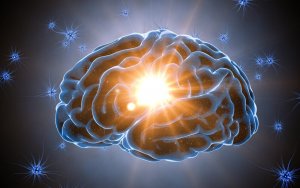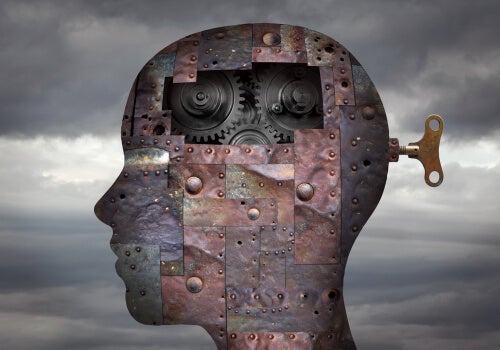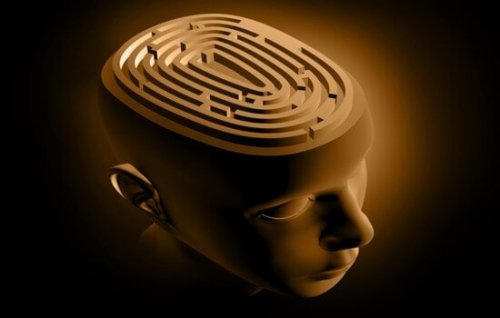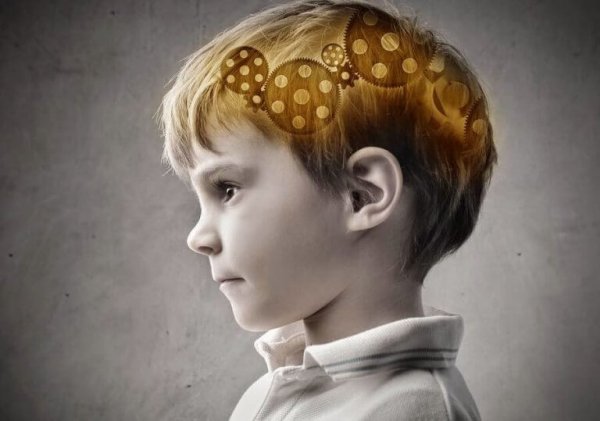Psychological Guidance for Epileptic Patients

Epilepsy is a disease of the central nervous system (CNS). A temporary disruption in your neurons breaks the balance between excitatory and inhibitory neurons. Because of this, many nervous cells suffer a simultaneous and strong discharge.
There are different kinds of crises depending on the brain’s involvement. It can cover the entire brain or just certain parts. A crisis may originate in one part of the brain and then spread to the rest. It’s not epilepsy if it’s just a crisis under special circumstances, such as intoxication, lack of oxygen, or fever. Epilepsy means that the crises are consistent.
Half of the cases of epilepsy happen during childhood and more than two thirds of epileptics have their first crisis before their 20s.

The causes of epilepsy and types of crises
Epilepsy may be caused by a predisposition of the brain or later brain damage. Brain injuries happen mostly during birth or early childhood. Infections, injuries, brain tumors, brain hemorrhages, intoxications, and poor vascularization, among other conditions, could also cause brain damage.
However, most epileptics don’t have an ongoing brain injury, but repetitive crises that can be somewhat controlled with medication.
How do the different epileptic crises manifest?
The clinical expression of the seizures depends on the type of epilepsy and it can manifest in different ways.
- The patient abruptly stops what they’re doing, seems trapped for a few seconds, with a blank stare, and then resumes what they were doing.
- They can also show muscle spasms.
- Suddenly, they fall into a state of confusion and can’t control their movements.
- The patient falls, they pass out, their body becomes rigid, and they have seizures in the head and limbs.
Crises could also show stereotyped movements, tapping, blinking, salivation, vomiting, trouble breathing, and wetting, among others.
Usually, epileptic seizures don’t last long and they end as they started. Epileptic patients lose control over some physiological functions during the seizures.

The treatment for epilepsy
Most epilepsies are sensitive to drug treatment. Often, one single drug can help, although, in some cases, two or more are needed. Drug treatment can be lifelong in most cases.
In case of resistance to drugs, when the seizures continue or worsen, surgical intervention is another option for patients.
Psychological guidance for epileptic patients
A diagnosis makes epileptic patients and their families come to terms with this reality. The people that understand their epilepsy and get support usually deal better with their seizures and emotions and know how to defend their interests.
Learning about epilepsy is an important first step. Joining a support group or talking about it with a specialist are great ways to get information and understanding.
Some people go to a healthcare provider or a psychologist to get psychological support. In a way, it’s important to build a supportive network around the person with epilepsy, people that can be seen as essential support.
There are other less visible, but still important, problems. Accepting the diagnosis, working on handling their emotions, hygiene, family issues, and career plans, among other things.
Patients should be involved in handling their epilepsy. Taking control of the disease, dealing with their emotions, understanding what could cause a crisis, and preventing these circumstances, if possible. Finally, and if possible, they need to find and use an intervention method that can help control the seizures.
A supportive network of healthcare providers during childhood
To give a better treatment to children with epilepsy, you need to understand the neurological and emotional factors that could be causing their symptoms. This is a difficult job because the limits are faint.
A neuropediatrician, working with a neuropsychologist, will create a neuropsychological evaluation of the child’s skills and difficulties. They’ll compare the evaluation to other cognitive disorders. This will give you an idea of what disorder could be causing the seizures.
Communication between the doctors and the epileptic patients’ families
Psychologists interview children and teens to understand their experiences with the disease and its consequences. Children may think these experiences are humiliating and sad. It’s about seeing things through their perspective.
Every healthcare provider needs to teach the kid to assess what could cause crises. Parents of children with epilepsy are usually aware of these adjustments and can tell their close relative how to deal with an epileptic seizure.

Dealing with their emotions through epilepsy
Many people with epilepsy note that their emotions and feelings affect the frequency of the seizures. As a result, learning how to handle their emotions could reduce the frequency of the seizures.
It’s possible to change an attitude. For example, epileptic patients should focus on the things they can do, instead of those they can’t. Handling stress could prevent a crisis. Also, using relaxation techniques such as yoga or writing in a journal.
Other important measures to take and help prevent seizures are:
- Getting good sleep.
- Regular physical activities to avoid hyperventilation.
- Having a regular food schedule.
- Having a balanced diet.
- Avoiding caffeine, sugar, alcohol, and drugs.
- Taking medication.
What to do during an epileptic episode
At any moment, people in crises can become strange, unreachable, and incomprehensible. Parents can also feel powerless to help their children. Understanding the disease can also be a good way to avoid feeling anxious.
During a generalized tonic-clonic seizure:
- Stay calm.
- Take the patient to an area where they can’t hurt themselves.
- Place a pillow or clothes under their head.
- Remove their glasses.
- Make it easier for them to breathe. Loosen up their clothes, especially around the neck.
- Time the episode.
When convulsions end:
- Put the person on their side (preferably on the left side).
- Clean their airwaves, to release saliva or vomit.
- Stay with them until they’re no longer disoriented.
- If necessary, give them a chance to rest.
Epilepsy is a disease of the central nervous system (CNS). A temporary disruption in your neurons breaks the balance between excitatory and inhibitory neurons. Because of this, many nervous cells suffer a simultaneous and strong discharge.
There are different kinds of crises depending on the brain’s involvement. It can cover the entire brain or just certain parts. A crisis may originate in one part of the brain and then spread to the rest. It’s not epilepsy if it’s just a crisis under special circumstances, such as intoxication, lack of oxygen, or fever. Epilepsy means that the crises are consistent.
Half of the cases of epilepsy happen during childhood and more than two thirds of epileptics have their first crisis before their 20s.

The causes of epilepsy and types of crises
Epilepsy may be caused by a predisposition of the brain or later brain damage. Brain injuries happen mostly during birth or early childhood. Infections, injuries, brain tumors, brain hemorrhages, intoxications, and poor vascularization, among other conditions, could also cause brain damage.
However, most epileptics don’t have an ongoing brain injury, but repetitive crises that can be somewhat controlled with medication.
How do the different epileptic crises manifest?
The clinical expression of the seizures depends on the type of epilepsy and it can manifest in different ways.
- The patient abruptly stops what they’re doing, seems trapped for a few seconds, with a blank stare, and then resumes what they were doing.
- They can also show muscle spasms.
- Suddenly, they fall into a state of confusion and can’t control their movements.
- The patient falls, they pass out, their body becomes rigid, and they have seizures in the head and limbs.
Crises could also show stereotyped movements, tapping, blinking, salivation, vomiting, trouble breathing, and wetting, among others.
Usually, epileptic seizures don’t last long and they end as they started. Epileptic patients lose control over some physiological functions during the seizures.

The treatment for epilepsy
Most epilepsies are sensitive to drug treatment. Often, one single drug can help, although, in some cases, two or more are needed. Drug treatment can be lifelong in most cases.
In case of resistance to drugs, when the seizures continue or worsen, surgical intervention is another option for patients.
Psychological guidance for epileptic patients
A diagnosis makes epileptic patients and their families come to terms with this reality. The people that understand their epilepsy and get support usually deal better with their seizures and emotions and know how to defend their interests.
Learning about epilepsy is an important first step. Joining a support group or talking about it with a specialist are great ways to get information and understanding.
Some people go to a healthcare provider or a psychologist to get psychological support. In a way, it’s important to build a supportive network around the person with epilepsy, people that can be seen as essential support.
There are other less visible, but still important, problems. Accepting the diagnosis, working on handling their emotions, hygiene, family issues, and career plans, among other things.
Patients should be involved in handling their epilepsy. Taking control of the disease, dealing with their emotions, understanding what could cause a crisis, and preventing these circumstances, if possible. Finally, and if possible, they need to find and use an intervention method that can help control the seizures.
A supportive network of healthcare providers during childhood
To give a better treatment to children with epilepsy, you need to understand the neurological and emotional factors that could be causing their symptoms. This is a difficult job because the limits are faint.
A neuropediatrician, working with a neuropsychologist, will create a neuropsychological evaluation of the child’s skills and difficulties. They’ll compare the evaluation to other cognitive disorders. This will give you an idea of what disorder could be causing the seizures.
Communication between the doctors and the epileptic patients’ families
Psychologists interview children and teens to understand their experiences with the disease and its consequences. Children may think these experiences are humiliating and sad. It’s about seeing things through their perspective.
Every healthcare provider needs to teach the kid to assess what could cause crises. Parents of children with epilepsy are usually aware of these adjustments and can tell their close relative how to deal with an epileptic seizure.

Dealing with their emotions through epilepsy
Many people with epilepsy note that their emotions and feelings affect the frequency of the seizures. As a result, learning how to handle their emotions could reduce the frequency of the seizures.
It’s possible to change an attitude. For example, epileptic patients should focus on the things they can do, instead of those they can’t. Handling stress could prevent a crisis. Also, using relaxation techniques such as yoga or writing in a journal.
Other important measures to take and help prevent seizures are:
- Getting good sleep.
- Regular physical activities to avoid hyperventilation.
- Having a regular food schedule.
- Having a balanced diet.
- Avoiding caffeine, sugar, alcohol, and drugs.
- Taking medication.
What to do during an epileptic episode
At any moment, people in crises can become strange, unreachable, and incomprehensible. Parents can also feel powerless to help their children. Understanding the disease can also be a good way to avoid feeling anxious.
During a generalized tonic-clonic seizure:
- Stay calm.
- Take the patient to an area where they can’t hurt themselves.
- Place a pillow or clothes under their head.
- Remove their glasses.
- Make it easier for them to breathe. Loosen up their clothes, especially around the neck.
- Time the episode.
When convulsions end:
- Put the person on their side (preferably on the left side).
- Clean their airwaves, to release saliva or vomit.
- Stay with them until they’re no longer disoriented.
- If necessary, give them a chance to rest.
This text is provided for informational purposes only and does not replace consultation with a professional. If in doubt, consult your specialist.







